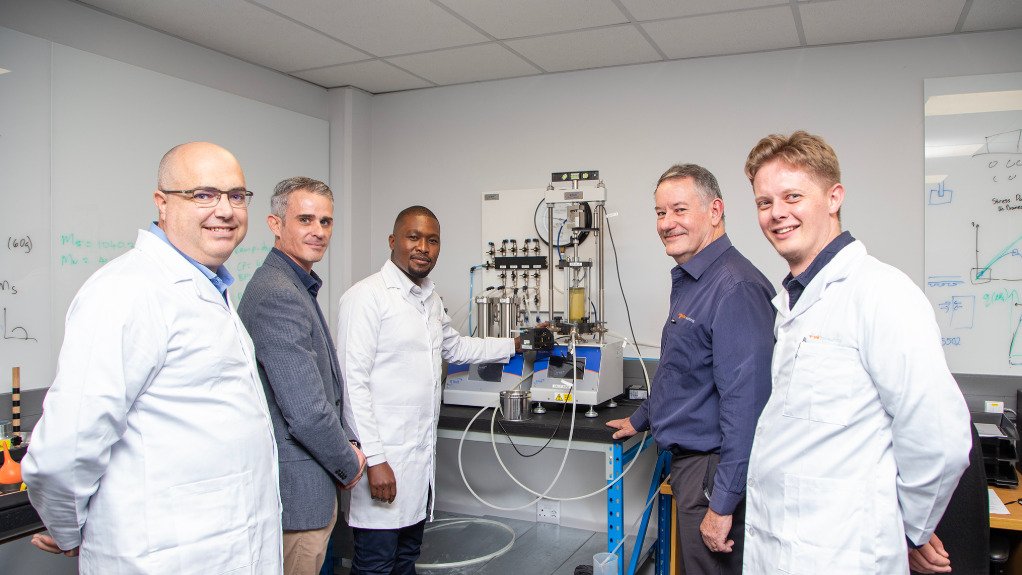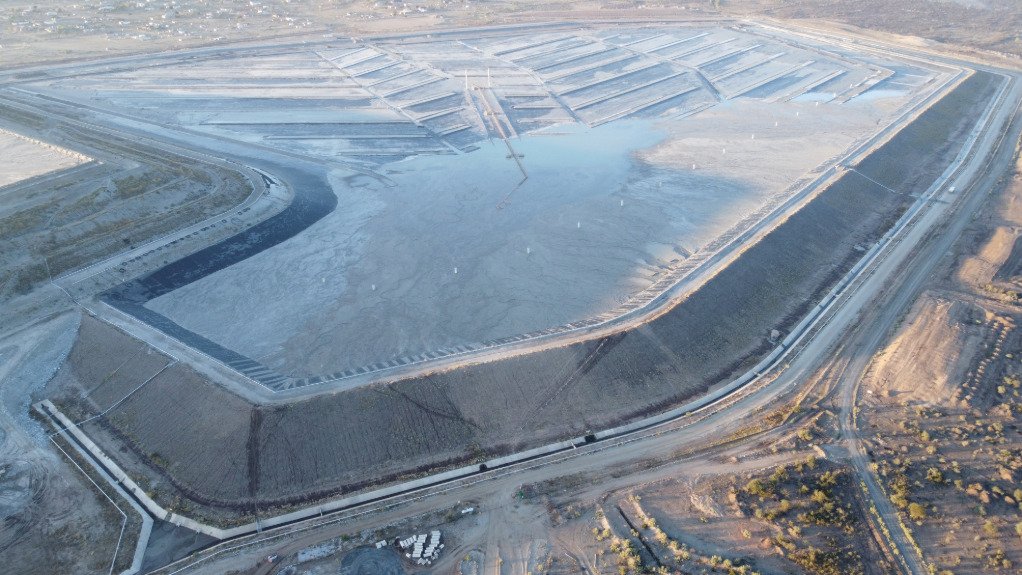Firm embraces tailings framework



MEETING THE TEAM The team at SRK's in house geotechnical laboratory use advanced technologies and testing methods to improve on the services that SRK delivers
COMPLEX STRUCTURES The ability to assess and study tailings dams ensures the provision of the highest quality of data for clients’ analyses, which ultimately translates to significant savings for clients as well
Serving as a key driver in its move towards more responsible and effective tailings management and retreatment, the ever-increasing need to conform to the Global Industry Standard on Tailings Management (GISTM) framework has been embraced by engineering and scientific consultancy SRK Consulting South Africa.
This trend has resulted in SRK Consulting South Africa investing in its own geotechnical laboratory, in Johannesburg, primarily for in-house purposes to support projects with test validations for clients, while conducting research and upskilling staff.
The new laboratory uses advanced technologies and testing methods and is one of only a few such laboratories in the country.
“The benefits of our laboratory include it improving the services that we deliver by allowing us to speed up testing where necessary and add a layer of quality assurance to results that we request from commercial laboratories,” says SRK Consulting South Africa partner, engineering geologist and department lead John Stiff.
The laboratory also represents some of the core values of the consultancy, including those of excellence in its service to clients and its people-oriented approach and responsibility to develop the careers of staff.
It also aids the provision of the highest quality of data for clients’ analyses, which ultimately translates to significant savings for clients as well.
Weather the Storm
An area of concern in tailings-related practices is the significant lack of meteorological monitoring at many mine sites, says SRK Consulting South Africa partner and principal environmental scientist Philippa Burmeister.
A vital aspect of the tailings storage facility (TSF) knowledge base is accurate weather data, including site-specific rainfall levels, but many TSFs are still being managed without the necessary information.
She adds that water management is another crucial element in preventing TSF failures, which requires detailed meteorological monitoring that could trigger appropriate responses to observed trends.
Insufficient data exacerbates the challenge of predicting future weather, such as rainfall, as projections tend to be a “best guess”.
“This monitoring of meteorological parameters is perhaps one of the most significant current gaps in meeting GISTM requirements, from a climate change perspective,” says Burmeister.
It is more than simply having a functional weather station on site – it is also about regularly analysing and acting on the data received and, therefore, it is prudent to improve the reliability of projections by comparing them regularly to current data collected from monitoring activities.
Sharing the Knowledge
The integration of data remains a key challenge, as its monitoring must be accessible to other disciplines, posits Burmeister. For instance, understanding changes in weather patterns and host community populations, distribution and water use is key to understanding the risk a TSF may have.
The GISTM requires climate change considerations to be incorporated into TSF design and management, including associated water management infrastructure. These designs must be regularly reviewed and reassessed as the understanding of climate change deepens.
She emphasises that the GISTM designates the knowledge base of TSFs as a “living document”, requiring continual updates and trend analysis. The GISTM also requires updated climate baselines and projections at least every five years or whenever there are significant changes to a TSF or the social, environmental and local economic context thereof.
“Consequently, TSF operators and stakeholders are expected to interact with the knowledge base actively, facilitating informed decision-making throughout the facility’s life cycle,” says Burmeister.
Article Enquiry
Email Article
Save Article
Feedback
To advertise email advertising@creamermedia.co.za or click here
Press Office
Announcements
What's On
Subscribe to improve your user experience...
Option 1 (equivalent of R125 a month):
Receive a weekly copy of Creamer Media's Engineering News & Mining Weekly magazine
(print copy for those in South Africa and e-magazine for those outside of South Africa)
Receive daily email newsletters
Access to full search results
Access archive of magazine back copies
Access to Projects in Progress
Access to ONE Research Report of your choice in PDF format
Option 2 (equivalent of R375 a month):
All benefits from Option 1
PLUS
Access to Creamer Media's Research Channel Africa for ALL Research Reports, in PDF format, on various industrial and mining sectors
including Electricity; Water; Energy Transition; Hydrogen; Roads, Rail and Ports; Coal; Gold; Platinum; Battery Metals; etc.
Already a subscriber?
Forgotten your password?
Receive weekly copy of Creamer Media's Engineering News & Mining Weekly magazine (print copy for those in South Africa and e-magazine for those outside of South Africa)
➕
Recieve daily email newsletters
➕
Access to full search results
➕
Access archive of magazine back copies
➕
Access to Projects in Progress
➕
Access to ONE Research Report of your choice in PDF format
RESEARCH CHANNEL AFRICA
R4500 (equivalent of R375 a month)
SUBSCRIBEAll benefits from Option 1
➕
Access to Creamer Media's Research Channel Africa for ALL Research Reports on various industrial and mining sectors, in PDF format, including on:
Electricity
➕
Water
➕
Energy Transition
➕
Hydrogen
➕
Roads, Rail and Ports
➕
Coal
➕
Gold
➕
Platinum
➕
Battery Metals
➕
etc.
Receive all benefits from Option 1 or Option 2 delivered to numerous people at your company
➕
Multiple User names and Passwords for simultaneous log-ins
➕
Intranet integration access to all in your organisation



















